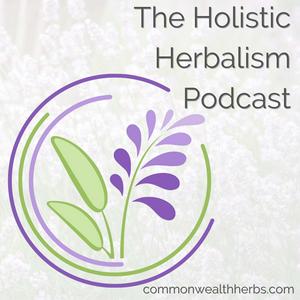Adaptogens, or A Nap To Gen…erate Recovery?
If you’re trying to decide whether you need adaptogens or a nap, well, the answer just might be both! But you can learn how to combine your adaptogens with other holistic interventions for better effects.In this episode we’re talking about choosing the best adaptogens to work with when what you really need is rest – a super common situation we all find ourselves in from time to time. We talk about ways to get rest – even if you don’t have time to nap! – as well as ways to rest that aren’t about sleep at all.How to start? Well, we can choose the least stimulating adaptogens necessary, first. That might mean going with tulsi before red ginseng, or jiaogulan before rhodiola. It might mean combining reishi and lion’s mane with burdock and dandelion root, to keep a grounding influence right there with our adaptogens. It might even mean formulating with digestives and nervines to subtly shift the influences of the adaptogenic herbs themselves.We can also be discerning about the type of activation we get – mental or physical at the fore. Tulsi & green tea is a very different combination than is eleuthero & coffee!Let’s also consider creating a support blend to go along with my adaptogens. This might include demulcents (marshmallow, fennel), nutritives (nettle), digestives (calendula, plantain, ginger, chamomile), or nervine relaxants & sedatives (skullcap, passionflower, betony, vervain). As always, herbal formulation is a great way to direct & enhance the effects of our primary herbs.Finally, here are three questions you should ask yourself whenever you’re thinking about adaptogens:What’s going on for me right now?Is there anything I could be doing differently?What’s the most important thing right now?Interested in learning more about adaptogens, nervines, and related herbs for nerve & mood support? Check out our Neurological & Emotional Health course. This course is a user’s guide to your nerves & your emotions – including the difficult and dark ones. We discuss holistic herbalism strategies for addressing both neurological & psychological health issues. It includes a lengthy discussion of herbal pain management strategies, too!Like all our offerings, this self-paced online video course comes with free access to twice-weekly live Q&A sessions with us, lifetime access to current & future course material, open discussion threads integrated in each lesson, an active student community, study guides, quizzes & capstone assignments, and more!If you have a moment, it would help us a lot if you could subscribe, rate, & review our podcast wherever you listen. This helps others find us more easily. Thank you!!Our theme music is “Wings” by Nicolai Heidlas.Support the showYou can find all of our online herbalism courses at online.commonwealthherbs.com!

